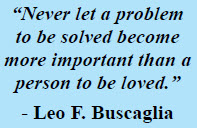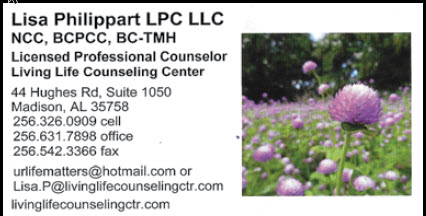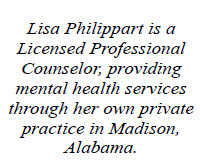 By: Lisa Philippart
By: Lisa Philippart
In my previous article, we addressed three reasons you may be experiencing relationship conflicts. These reasons were: trying to “fix” your partner’s feelings, not listening, and unwillingness to talk about how you feel. Now let’s take a look at some other causes of relationship challenges.
Resentment is a powerful source of interpersonal conflict. And it’s especially powerful when you insist on being quiet about your resentments and never acknowledging them. But here’s the deal…your resentments will come out one way or the other. And if you deny your resentments on top of feeling resentful, it’s very hard to overcome them. I know there is a ton of pressure to make relationships work. Or at least to make it seem like they are working. Unfortunately, insisting that an unhealthy relationship looks healthy all the time is a great way to only make it worse. It’s hard enough to work through resentments with each other, but it’s nearly impossible if you’re not honest with yourself about them first.
 Gaslighting is when you imply that someone is crazy for thinking or feeling what they do. And while gaslighting often takes extreme forms…manipulating someone into thinking they are literally losing touch with reality…it’s far more common in milder but not necessarily less toxic forms. Here is an example: Each time your spouse brings up feeling anxious about her boss at work, you roll your eyes. Or, when your partner talks about feeling angry, you list four reasons why it doesn’t make sense for him to feel angry. When we gaslight our partner, we contribute to them feeling insecure. And when people feel insecure, they get defensive. And defensiveness only leads to more conflict. So the next time they say something about how they feel that seems irrational or absurd, try this instead: “I can see why you’d feel that way.” Just because they feel bad doesn’t make them crazy!
Gaslighting is when you imply that someone is crazy for thinking or feeling what they do. And while gaslighting often takes extreme forms…manipulating someone into thinking they are literally losing touch with reality…it’s far more common in milder but not necessarily less toxic forms. Here is an example: Each time your spouse brings up feeling anxious about her boss at work, you roll your eyes. Or, when your partner talks about feeling angry, you list four reasons why it doesn’t make sense for him to feel angry. When we gaslight our partner, we contribute to them feeling insecure. And when people feel insecure, they get defensive. And defensiveness only leads to more conflict. So the next time they say something about how they feel that seems irrational or absurd, try this instead: “I can see why you’d feel that way.” Just because they feel bad doesn’t make them crazy!

 When you first fall in love, it feels like you and your partner are on the same page with everything. But as we all know, those early feelings can be deceptive. And years into a serious relationship, couples find themselves on very different pages about the biggest things: political views, parenting, religious preferences, etc. When you have major disagreements on values, conflict is likely to occur. Different values don’t have to be a deal breaker, but you’ll never know if you can’t admit to them. There are plenty of examples of happy couples out there who have extremely different values in certain areas. The difference is, they’re usually incredibly transparent about those differences.
When you first fall in love, it feels like you and your partner are on the same page with everything. But as we all know, those early feelings can be deceptive. And years into a serious relationship, couples find themselves on very different pages about the biggest things: political views, parenting, religious preferences, etc. When you have major disagreements on values, conflict is likely to occur. Different values don’t have to be a deal breaker, but you’ll never know if you can’t admit to them. There are plenty of examples of happy couples out there who have extremely different values in certain areas. The difference is, they’re usually incredibly transparent about those differences.
The challenge I have seen with couples is that they are afraid or unwilling to be open about what they value. I believe that you will only be able to navigate major value differences if you have empathy and understanding for your partner’s beliefs and worldviews. Have the courage to be open about your values. Because ultimately, it’s only when you are honest that real understanding and connection can happen.
I hope that I have given you insights into relationship conflicts and ways to recognize and address them. Ultimately, the key is the desire to work on your relationship.
By: Lisa Philippart
Licensed Professional Counselor





